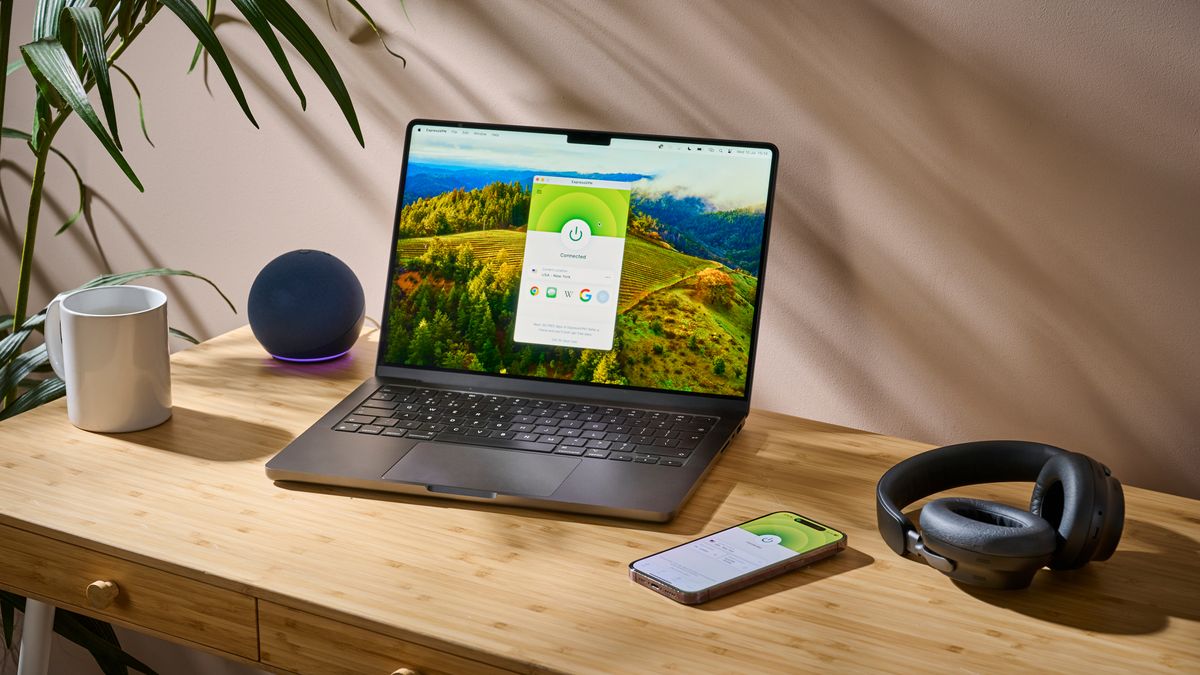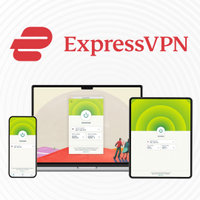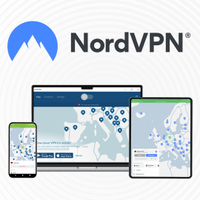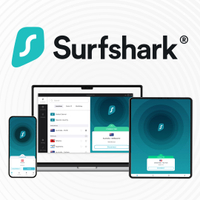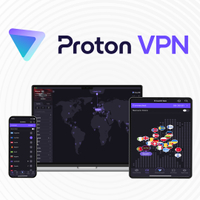TechRadar Verdict
ExpressVPN delivers top-tier speeds, airtight privacy policies, and an easy-to-use interface across most platforms. Its performance in streaming and secure browsing is stellar, though it’s not the best choice when it comes to blocking malware and phishing. While pricier than many alternatives, you’re getting a VPN that’s designed to work everywhere you go.
Pros
- +
High speeds with Lightway protocol
- +
Extensive server network in 100+ countries and 140+ locations
- +
Rigorous security and privacy audit policy
- +
Free password management tool with subscription
Cons
- -
Expensive compared to other VPNs
- -
Not as many security tools as some VPNs
- -
No port forwarding
Why you can trust TechRadar
ExpressVPN is one of the biggest players in the game, and regularly ranks among the best VPN services. It's well known for offering impressive speeds, fantastic unblocking capabilities, and a global server network – but did you know it's also one of the most secure VPNs around?
However, with that impressive security comes a hefty price tag. Monthly costs start at $6.67 if you opt for the one-year plan, and go up to $12.95 if you want a single month of protection.
While its security is unmatched, it's still lagging behind NordVPN and Surfshark when it comes to overall offering. So keep reading to see how Express stacks up in terms of speeds, unblocking capabilities, features, ease of use, and overall value for money.
Recent updates
Since our last update we've completed another round of testing, which has shown impressive download speed improvements, new transparency information, and a host of improvements to its apps. To help you see what's new, we've given the review a bit of a refresh too, meaning it's easier than ever to find the information you need.
Features
This isn’t a VPN that comes as part of a suite with other security programs. ExpressVPN is primarily a virtual private network that’s built to do the core VPN work very well, but there are a few extra features tucked away designed to make your life easier too.
Bundled with the VPN, you'll find Express Keys, which is a password manager available for iOS, Android, and Chrome. This uses the same zero-trust encryption that the rest of ExpressVPN’s architecture uses, ensuring you’re the only one with access to your key vault. It’s not quite as customizable as some of the best password managers, but otherwise, Express Keys is a perfectly functional way to share passwords between your devices.
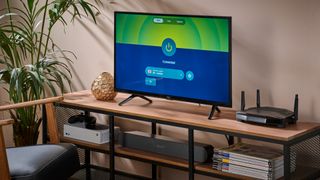
If you go through the app settings, you'll find an impressive ad blocker – the best among the big-name providers in our tests. You'll also find parental controls if you're looking to install the VPN on your child's devices and stop them from accessing anything they're too young for.
There's even a built-in tracker and malware blocker that operates at a DNS level to prevent viruses and fake websites before they have the chance to strike. It's worth noting that our test showed this feature was having some serious issues with fake websites, but we're working with ExpressVPN to dig deeper and ensure the issue is resolved as soon as possible.
If there's anything you don't want going through the VPN's encrypted tunnel, you'll love the split tunneling feature that lets you pick what does and doesn't get the VPN treatment. I love using it for Android Auto because it saves me from plugging my phone in every time I get in the car.
If that's not enough, there are even dedicated IP addresses on offer, and ExpressVPN is the first and only VPN service to offer a truly anonymous IP allocation system for dedicated IPs. It leverages Amazon's Nitro Enclaves to enable provably anonymous delivery without compromising you if you refund the IP address or VPN altogether.
Features score: 7/10
Server network
With over 148 locations to choose from in 106 countries, ExpressVPN has one of the most comprehensive networks in the industry. It’s particularly strong in Europe, with 57 locations, but also does pretty well in Asia and North America. It also has the most VPN locations in Oceania of any provider on our top five VPN list.


There are all the popular locations in the US and Europe, but also some less common spots like Laos, Macau, and Mongolia – which aren’t typically supported by competitors. While it lacks servers in Russia, this is a growing trend among top VPN providers due to privacy concerns and global legislation.
One area of real weakness for ExpressVPN is coverage of the Middle East. At only 4 locations, ExpressVPN is performing below the average quality VPN provider. Everywhere else, though, ExpressVPN is pretty strong.
Server network score: 9/10
Apps
ExpressVPN’s apps are available on nearly every platform imaginable, including Windows, macOS, iOS, Android, Linux, and smart devices like Amazon Fire TV, routers, and gaming consoles. While the Windows and MacOS versions are more or less the same as each other, the Linux version is only a command line version (for now). It still provides the same functionality, but it’s a little less convenient and looks dated compared to the fully-functioning Linux GUI apps you get from Proton VPN or Private Internet Access.
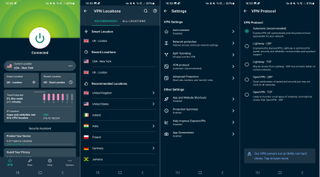
On desktop, it’s pretty easy to get started. There’s a small quirk of the install process where you’ll have to enter login credentials you get from the ExpressVPN dashboard instead of your email, but once you’ve found and entered them everything else is business as usual. One-click connect from the home screen enables your VPN, and that’s it.
Switching over to its mobile apps, the interface is just as intuitive and uncluttered, perfect if you need to dive into the app quickly while you’re on the move. The mobile apps also include a “shortcuts” feature that allows you to create quick access to specific apps after connecting to the VPN, further streamlining your use.
ExpressVPN is also available on both its in-house AirCove router and certain Netgear, Linksys, and Asus routers. You will have to flash your router firmware to upgrade to Aircove, which isn’t a difficult task but could potentially brick your router if it goes wrong. I was pleasantly surprised at how much control AirCove gives you over your ExpressVPN connection. The real standout here is Device Groups, which lets you manage completely different VPN settings for groups of devices connected to your router.
Apps score: 8/10
Ease of use
It feels like ExpressVPN’s apps have been built to be particularly user-friendly. The app UI itself is pretty self-explanatory: Click connect to get the nearest server, or choose the location dropdown for more choices. It’s a perfect VPN if you’ve never used one before, whereas some providers like Proton VPN can overwhelm you with options. Because of this, Express finds itself at the top of our best VPN for beginners guide.
Of course, for the more advanced VPN user there are also your VPN protocols and split-tunneling hidden behind a separate menu should you need them. Express has even gone a step further in recent months, letting you further customize your cipher between AES256 and ChaCha20, and setting up NAT heartbeats. I'd only recommend toying with these settings if you know what you're doing – otherwise, you'll increase your battery consumption needlessly.
Ease of use score: 10/10
Speed and performance
In our testing, ExpressVPN proved itself to be able to provide an impressively fast service, with low latencies throughout. While it still may not be the fastest VPN, the quality of the network meant we rarely saw buffering as a result of the VPN when testing with streaming services, but we'll talk more about this later.

We have both a UK and US virtual machine with 1GB bandwidth connections each. We use them to test various times during the day and take an average of the speeds we get. You can find out more in our VPN testing methodology.
Testing ExpressVPN's Lightway protocol on our closest server delivered download speeds of 898 Mbps, which is particularly impressive since it was using TCP, the traditionally slower protocol when compared to UDP. This result means ExpressVPN can retain its high performance across a wider number of networks, given TCP's increased compatibility.
Despite this, ExpressVPN continues to be slower in testing than Surfshark and NordVPN, even if the margin-by-which is much reduced since our last round of testing. Connecting to the US from the UK also halved the speeds achieved to 396 Mbps, which is on the lower end of our results, while the likes of Surfshark managed to consistently perform at 950+ Mbps through all hours of the day even when connected over long distances.
OpenVPN results were significantly slower, reaching a high of 160 Mbps throughout testing. Every other of our top five VPN providers posted a better OpenVPN download speed. While 160 Mbps is still certainly enough bandwidth to stream 4K content with ease, it’s also a massive reduction of what we should be able to download.
Take a look at some of our speed test results, mapping download and upload speeds as well as latency, so you can see how much data you can send and how quickly it shoots through the network. Lightway, WireGuard, and NordLynx are all of the same caliber in terms of speed, so we put those together, while OpenVPN is an old protocol that's still used for extreme security.
Speed and performance score: 8/10
Unblocking sites and content
ExpressVPN has set consistently high expectations in unblocking geo-restricted content and it continues to perform here, albeit with a few inconveniences. We test all our VPNs by attempting to access some of the biggest streaming sites, such as Netflix, Disney+, Amazon Prime, iPlayer, 10Play, and a whole bunch more. This includes regional variants so we end up checking Netflix in the UK, Canada, Japan, and Australia as well as the US. ExpressVPN allowed me to stream in each case, but for both the Japanese and Australian variants I had to swap servers to get access.
We also check some more regional sites, such as BBC iPlayer, ITV, Channel 4, 9Now, and 10 Play. Most sites performed fine the first time, but once again I had to shop around to be able to access 10 Play. On the plus side, all of ExpressVPN’s servers are optimized for streaming, so as soon as you find one that works you’ll be in for the best experience possible. If you're ever stuck, just ask ExpressVPN's customer support, they're always quick to give you a server that's sure to work.
Because of this, it's a great VPN for unblocking your favorite content, but it's not quite at the top of our list for the best streaming VPN.
Although the MediaStreamer DNS service ExpressVPN offers isn’t a VPN and doesn’t offer the same privacy benefits, it’s a great way to access content from devices you can’t install a VPN on, such as older smart TVs.
They’re all enabled for P2P too, making ExpressVPN an okay choice for torrenting. The only issue is that ExpressVPN’s servers don’t allow for port forwarding, making it so you won’t be able to accept incoming requests in a P2P service. Essentially, you’ll be getting slower torrenting speeds on ExpressVPN because you can’t connect to some peers in the swarm.
Content, streaming, and torrenting score: 9/10
Privacy and security
ExpressVPN is one of the most well-tested VPNs out there. Even paranoid privacy purists like myself will be impressed by Express’ extensive audit history, which includes several separate audits of its no-logs policy and overall security. Most recently, in May 2024, the results of ExpressVPN’s 18th audit reaffirmed that its TrustedServer technology ensures no data is retained, as all servers run on volatile RAM, meaning every reboot wipes any stored information.
TrustedServer technology is ExpressVPN's approach to ensuring your data remains completely safe. By using RAM-only servers which are reinstalled weekly, there is little damage an attacker could do thanks to the regularity of updates and data wipes being performed. However, if you ever got inside an Express server, you'd net yourself a tidy $1 million bug bounty.
While you’ve got access to both OpenVPN and IKEv2, ExpressVPN also uses its proprietary Lightway protocol, which is built from the ground up as a mobile-first solution with speeds far beyond what OpenVPN can provide. It’s open-source and rigorously audited, so you won’t have to compromise on security to use it. Personally, I think it's a super-safe and speedy replacement for OpenVPN nowadays, and Express is going above and beyond to make it the protocol of the future – partnering with the amazing WolfSSL to give it maximum security.
ExpressVPN uses AES-256 encryption, alongside a hybrid 4096-bit RSA and quantum secure 1000-dimension ML-KEM key exchange and Perfect Forward Secrecy. Even if your data was captured by a third party, ExpressVPN uses encryption so strong that it’d take thousands of years to decode with today’s computing power. Perfect Forward Secrecy guarantees that your encryption keys are rotated regularly, so even if a key is compromised, it won’t affect past or future sessions.
The built-in kill switch is a key security feature, immediately severing your internet connection if the VPN drops to prevent your real IP address from being exposed. ExpressVPN also offers DNS leak protection, ensuring your DNS queries are routed securely through their servers, further protecting your browsing data. Express' team was the first to identify and categorize a type 2 DNS leak, and now protects against needless DNS requests that won't resolve. Just in case anyone's keeping track.
Perhaps my favorite security feature is Shuffle IP, which allocates a random IP address for every site you visit, meaning you don't have a correlation between your online activity, so it's even harder to track your online activities, where a poorly-configured rotating IP would create a pattern of waves, making you stand more. It's a little detail, but one that's indicative of the sheer attention to detail that goes on behind the scenes.
With all that said, I would like to see ExpressVPN improve its malware and phishing protection. This is where it falls behind competitors like Surfshark and NordVPN. To test out ExpressVPN’s anti-phishing protection, we tried to open 294 brand-new malicious URLs from anti-phishing experts OpenPhish.
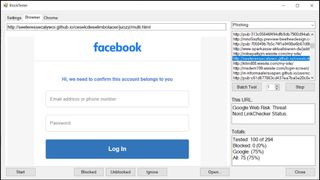
Unfortunately, it didn’t work at all for us. We’re currently investigating why our block rate is so low alongside ExpressVPN, but for now, I have to say that ExpressVPN completely failed to block any phishing or malware sites. It’s a pity, especially considering its ad-blocking score sits at the highest of any of our providers at a 90% success rate.
Still, if you want a VPN that is as secure as can be, ExpressVPN is the one I'd stake my life on. The level of ingenuity that goes into securing the VPN itself is unmatched anywhere else in the industry. However, until it improves its supporting antivirus features, you may want one of the best antivirus apps to help boost your protection.
Security score: 10/10
Track record
ExpressVPN has had its fair share of controversies, but none of them are particularly pressing to discuss at the moment. The biggest issue is that ExpressVPN was purchased in 2019 by a VPN brand, Kape Technologies, which has a bit of a reputation problem. Kape previously traded under the name "Crossrider", and gained notoriety for selling potentially unwanted apps that many deemed malware. It's not fair to hold this against Express, especially since Kape has kept a fairly clean record since its rebrand.
Thankfully, ExpressVPN has always been very diligent in scheduling multiple third-party audits to demonstrate and prove its no-logs policy is legitimate. At last count, it's commissioned 18 separate audits of its apps, architecture, and privacy policy. The most recent of these is a privacy audit from KPMG, showing that TrustedServer does what it says on the tin.
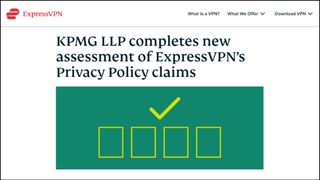
Audits are a regular part of ExpressVPN's operations and a testament to its commitment to protecting users. A thoroughly audited no-logs privacy policy is a fantastic indicator of a VPN you can trust.
Track record score: 9/10
Customer support
There are a few reasons ExpressVPN justifies its substantial cost, and customer support is one of them. Whenever you have an issue, the 24/7 live chat is always available. I found that I’d usually hear back from someone within 5-10 minutes, whereas once I escalated to email I got a full response within 12 hours, although it’s likely you’ll hear from ExpressVPN's helpful staff much sooner. It’d be nice if there also was a direct phone line for inquiries, but the live chat is responsive enough that it’s not a bad replacement.
If you prefer self-help, the support center knowledgebase is excellent – offering plenty of in-depth guides and tutorials. If I were pressed to find a flaw, I would say that it would be nice to have slightly more support articles focused on Aircove, but overall the range of articles is pretty expansive.
Customer support score: 9/10
ExpressVPN cost and pricing plans
ExpressVPN's pricing is among the highest in the industry, with a single-month subscription costing $12.95. Although ExpressVPN has a reputation for being a bit expensive, it’s still cheaper monthly than Surfshark’s $15.45 monthly base plan.
As with any VPN service, you'll save money by signing up for a longer period and paying up-front, but Express is still the most expensive of our top five. The annual plan only brings the cost of the VPN down to $6.67 per month – which is around double the cheapest subscription rate of NordVPN or Surfshark. It’s still great value for money, but Nord performs better than ExpressVPN for notably less.
There isn’t a free plan for ExpressVPN, but a 30-day money-back guarantee means you'll never risk a penny – so long as you refund your subscription within the period.
Pricing score: 7/10
Should you use ExpressVPN?
If you need a VPN you can stake your life on, or if you just want something that'll do all the hard work for you, you won't do better than ExpressVPN. It may be a pricey pick, but the attention to detail and the quality of the build more than make up for it.
Overall score: 86/100
Try ExpressVPN – from $6.67 per month
The best VPN for beginners and the most secure
ExpressVPN is a simple and easy-to-use VPN that takes all the hassle out of protecting yourself online. If you want a VPN you can stake your life on, this is the one I'd use, without question. If you're unsure about the price, remember there's a 30-day money-back guarantee to take advantage of – so you can put it to the test without risking a penny.
ExpressVPN alternatives
If you don't think ExpressVPN is the right fit for you, here are my top three picks for alternatives:
1. NordVPN – from $3.09 per month
The best VPN overall
Our number 1 recommendation. NordVPN comes absolutely rammed with features, and has consistently proven itself in our testing as one of the fastest, as well as one of the best streaming VPNs on the market. While it's not as simple as Express is, its apps are still easy to use. Try it for yourself with a 30-day money-back guarantee, and see why it's the best VPN around.
2. Surfshark – from $2.19 per month
The best cheap VPN (and also the fastest)
Don't be fooled by the price tag. Surfshark isn't just cheap, it's a full-blown privacy suite with the best value-for-money toolkit I've seen in the market so far. Beyond its great features and even better pricing, it's also the current champion in our speed tests, and has been for a while. Check out this budget-friendly privacy demon with a 30-day money-back guarantee and see how it compares to ExpressVPN.
3. Proton VPN – from $3.99 per month
A great pick for small businesses
If you're looking for more of a privacy-focused business suite, Proton's a great pick. While some VPNs focus on hardcore security and anonymity features, Proton has built itself up to be the privacy professional option. It's by no means a cheap option, but with a 30-day money-back guarantee, and one of the best free VPN options around, it's hard to go wrong with Proton.
ExpressVPN FAQs
Is ExpressVPN good for streaming?
Yes, ExpressVPN excels at unblocking major streaming platforms like Netflix, Hulu, BBC iPlayer, and Disney+. With its MediaStreamer feature, you can also unblock content on devices that don’t support VPNs, such as smart TVs and gaming consoles. Our testing showed it unblocked every streaming service we tested in every country we tested. There were only a couple of locations that didn't work first try (but we still got it to work).
Does ExpressVPN keep logs?
No, ExpressVPN has a strict no-logs policy, which has been independently verified by multiple third-party audits. This means it doesn’t store any identifying information about your activity while connected to the VPN.
Can I use ExpressVPN on multiple devices?
Yes, a single ExpressVPN subscription allows you to connect up to 8 devices simultaneously, and it’s compatible with a wide range of platforms, including Windows, macOS, iOS, Android, Linux, Smart TVs, and even routers.
Disclaimer
We test and review VPN services in the context of legal recreational uses. For example: 1. Accessing a service from another country (subject to the terms and conditions of that service). 2. Protecting your online security and strengthening your online privacy when abroad. We do not support or condone the illegal or malicious use of VPN services. Consuming pirated content that is paid-for is neither endorsed nor approved by Future Publishing.

Sam Dawson is a cybersecurity expert who has over four years of experience reviewing security-related software products. He focuses his writing on VPNs and security, previously writing for ProPrivacy before freelancing for Future PLC's brands, including TechRadar. Between running a penetration testing company and finishing a PhD focusing on speculative execution attacks at the University of Kent, he still somehow finds the time to keep an eye on how technology is impacting current affairs.
- Mike WilliamsLead security reviewer
